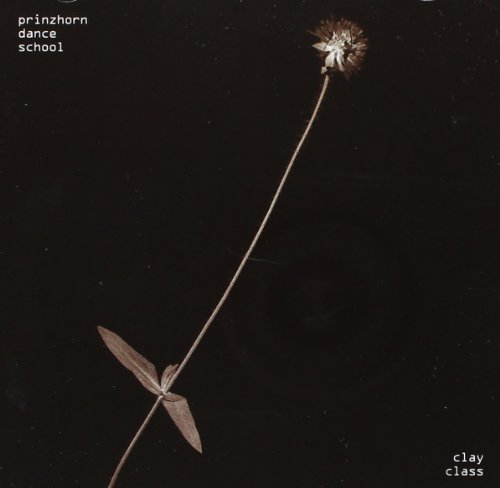
Prinzhorn Dance School
Clay Class
Release Date: Jan 31, 2012
Genre(s): Pop/Rock, Alternative/Indie Rock, Alternative Pop/Rock, Indie Rock, New Wave/Post-Punk Revival
Record label: DFA
Music Critic Score
How the Music Critic Score works
Buy Clay Class from Amazon
Album Review: Clay Class by Prinzhorn Dance School
Very Good, Based on 9 Critics
Based on rating 5/5
"We're happy in pieces/Happy in bits," sing Suzi Horn and Tobin Prinz of the Portsmouth, England duo Prinzhorn Dance School. They might be talking about their emotions; they're definitely describing their music. Prinzhorn's second album is all about pieces and bits – fragments of rhythm and melody, a bassline chunk here, a snare drum shard there – arranged and rearranged like a jigsaw puzzle.
Based on rating 8/10
Remember when everyone got their knickers in a twist about Prinzhorn Dance School when they first emerged? When everyone got their cheap briefs in a quiet, personal twist about their presence on the DFA roster even though we pretended to be cool about it, even though it didn’t rest 100 per cent easy with us but it seemed cooler to be cool about it? Because at the time it seemed a bit… I dunno… but now it’s all fine ‘cause the world grew up a bit and no one gives a flying bat-shit about belonging somewhere anymore? Nah, me either. Nearly five years since the release of their debut album, Tobin Prinz and Suzi Horn have gone for the ‘more of the same, please, guv’nor’ approach to their second long-player. Clay Class is a casual series of stream-of-consciousness thought processes, set to a simple beat and guitar lines that play follow-my-leader with the vocals.
Based on rating 7/10
There’s an undeniable sense of dread that sinks in as you listen to “Happy in Bits”, the opener to Prinzhorn Dance School’s new sophomore album Clay Class. Like everything on the album, “Happy in Bits” is extremely stark and minimalist: bass and drums duel with sinister urgency underneath the insistent, half-shouted refrain of “We’re happy in pieces / Happy in bits / You and me / Just happy to be”, with occasional laconic bursts of angular melody from a guitar. The spare instrumentation makes the song’s opening declaration, “I’m glad you’re here”, sound like you’ve just walked into a prison cell.
Based on rating 7.0/10
It sometimes gets overlooked, due to the collective outpouring of romance surrounding LCD Soundsystem and the seismic waves caused by the dropping of the Rapture's "House Of Jealous Lovers" single back in the early aughts, but DFA's post-punk division is nothing to sneeze at. Keep in mind, we're talking about post-punk in the austere, minimal, and very British sense. In other words, more Wire and Fall than Gang Of Four, more Joy Division than New Order.
Based on rating 7.0/10
"I do not like change! I do not like change!" When Tobin Prinz hollered those lines on Prinzhorn Dance School's 2007 self-titled debut, he was speaking in the crotchety voice of an uptight conservative caricature. But, judging by this five-years-in-the-waiting follow-up, the line serves as a handy bumper-sticker advertisement for his own band's cryogenically sealed post-punk aesthetic. If Gang of Four famously extracted the sex out of funk, then Prinzhorn Dance School suck the funk out of Gang of Four, retaining their violent guitar spasms, ominous bass throbs, derisive vocal interplay, and the claustrophobic, Entertainment!-style production, but breaking up the 4/4 fluidity into hiccupping, epileptic rhythms that, true to the PDS name, would seemingly require some educational instruction on how to dance to them.
Based on rating C+
The formula that makes Prinzhorn Dance School work is one of utter simplicity; they’re the reason the word “minimal” is used in music discussion. England’s Tobin Prinz and Suzi Horn may have a similar setup to The White Stripes, but the bass and drums compositions these two put out make even the early Jack White work seem flamboyant. Their 2007 self-titled debut album received amazingly mixed reviews (heck, the The Guardian gave it either one or four stars; the reviewer couldn’t decide) despite some superb, weirdo dance-punk hits.
Based on rating 45%%
Prinzhorn Dance SchoolClay Class[DFA Records; 2012]By Josh Becker; February 8, 2012Purchase at: Insound (Vinyl) | Amazon (MP3 & CD) | iTunes | MOGTweetSomewhere between the stylish garage rock of the White Stripes, the post-post-punk of the XX, and the rambunctious energy of Art Vs. Science is Prinzhorn Dance School, a duo consisting of Tobin Prinz on drums and Suzi Horn on bass (they share vocal duties, often in unison). Their style favors sing-shouted lyrics, clipped guitar lines, staccato bass lines, and bass-drum-heavy percussion.
Opinion: Very Good
Prinzhorn Dance School's eponymous DFA debut was sparse, to put it mildly. Its assiduously mid-paced two-note bass nag and minimalist percussion stretched a canvas to which cobwebs of guitar and diligently jaded boy-girl vocals were added sporadically. The lyrics flitted between undecryptable obscurity and the confrontationally literal, addressing Home Counties banalities such as a satellite town's civic amenities ('Hamworthy Sports and Leisure Centre'), the trappings of the litigious ('Lawyer's Water Jug'), and, well, the resentment of change ('I Do Not Like Change').
Opinion: Very Good
Five years ago, Prinzhorn Dance School, the musical project of U.K. artists Tobin Prinz and Suzi Horn, released its eponymous debut to a rather divided reception—to such a cognitively dissonant extent that, in one review, the album was awarded both 1 and 4 stars. Most negativity stemmed from the band’s inaccessibility: Prinzhorn traffics in a challenging strain of post-punk, characterized by spastic rhythms, imagistic sing shouting and a darkly minimal approach to the guitars.
'Clay Class'
is available now

